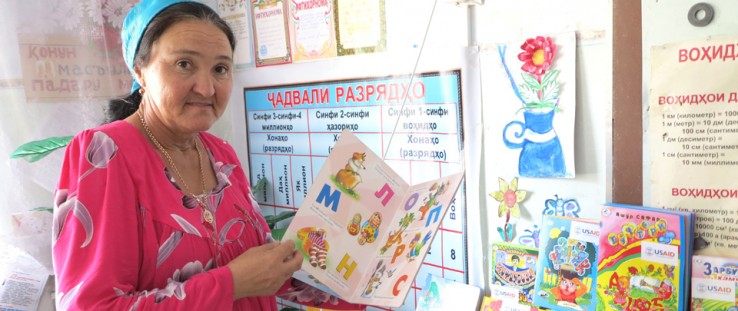 A school librarian shows off books at a library in Tajikistan established by USAID.
Sayora Khalimova, USAID
A school librarian shows off books at a library in Tajikistan established by USAID.
Sayora Khalimova, USAID
 A school librarian shows off books at a library in Tajikistan established by USAID.
Sayora Khalimova, USAID
A school librarian shows off books at a library in Tajikistan established by USAID.
Sayora Khalimova, USAID
Amida Taqieva lives with her children—4-year-old Elvira and 2-year-old Safarmamad—in the tiny and remote village of Deh, Tajikistan. Until two years ago, only outdated, broken down textbooks in Russian were available in the school library, the only library in the village. In Tajikistan, books in Russian don’t serve much purpose for most children, who learn Tajik before Russian. During the long winter months, there is no electricity to power televisions, radios, computers, or even a light to read by. Without power, in a village without quality books in a language most children can easily understand, winter evenings are dark, cold and dull.
Tajikistan’s educational system has been in decline since the collapse of the Soviet Union in 1991, and made worse by the country’s subsequent 1992-1997 civil war. With 50 percent of its population under age 23, and 60 percent of schools already running two or three shifts per day, the country is unprepared for a projected 40 percent increase of school-age children by 2015.
To make matters worse, Tajikistan’s literacy levels—already low—are declining precipitously. Books are not widely available and poverty rates are high, so many families would be unlikely to purchase them even if they were readily available. In addition, most books available on the market are written in Russian, not Tajik. Within the education system, inadequate budgets, outdated materials and curricula, limited professional education and training opportunities for teachers, and high teacher turnover all impede literacy and the cultivation of a reading culture.
In 2012, USAID established the Reading for Children project in partnership with the Aga Khan Foundation to support pre-primary literacy in Tajikistan. Pre-primary literacy is considered a critical building block for success during subsequent stages of schooling, and a critical step to ending extreme poverty.
The project, aimed at children between the ages of 3 and 7, encourages families to read together, expands access to age-relevant reading materials, and increases awareness among government officials, families and communities about the importance of reading to children.
“Delays in pre-primary literacy negatively impact the cognitive development of a child in school and in life,” said project manager Zuloby Mamadfozilov of the Aga Khan Foundation. “Access to reading materials increases a child’s interest in learning and enthusiasm for reading and prepares children for success in grade one and higher.”
The project trained local Tajik authors and illustrators to develop and write age-appropriate, culturally relevant stories for children, addressing a critical lack of Tajik-language children’s books available in local markets and schools. USAID published 25 books developed by these authors, and helped open nearly 246 mini-libraries, each containing more than 430 Tajik- and Russian-language books. Most newly established mini-libraries are located within existing village schools. However, some schools do not have suitable space and the project received permission to establish reading corners in private homes where residents could go to borrow books.
The project emphasizes the importance of reading to pre-primary children for teachers, librarians and parents, and teaches readers how to actively engage children while reading stories aloud. Readers are taught to stimulate children’s imagination and assess comprehension by asking questions while reading: What do you think will happen next? How do you think the little girl feels about that? What would you do in that situation? Readers also learn to encourage listeners to act out the stories they hear.
USAID has helped train dozens of librarians, who over the course of 2.5 years will reach nearly 15,000 parents and caregivers with active reading techniques through training events that help them understand the importance of reading to children. Taken together, these librarians, parents and caregivers will reach more than 25,000 children across 246 villages in Tajikistan.
Amida Taqieva’s village is home to one of the mini libraries. Taqieva attended a Reading for Children event where volunteers organized a program of reading, singing, acting and dancing for children and their caregivers. Since then, her children have become the most active readers in the village.
Elvira easily retells stories from library books and knows by heart the rhymes of Ali-fabayi Khudomuz—ABC for self-learners—a book developed by the project. “I have no words to express how happy our kids are with this opportunity,” recalled Taqieva. “I was speechless when I saw my daughter acting and reciting chastushka [traditional humorous songs]. I am so happy that my children have access to good books.”
At home, Taqieva created a reading corner where she reads library books every evening with her children and sometimes her neighbor’s children too. This new passion for reading gives her family a fun way to pass long winter evenings, and lays a foundation of literacy for when Elvira and Safarmamad begin primary school.
To amplify the project’s impact, Bahoriston, the national TV channel for children, agreed to incorporate, at no cost, the USAID-developed stories into a popular children’s program that airs nightly. During this family TV program, one girl narrates excerpts from a story, while two other girls act as characters to bring it alive, creating intrigue and enthusiasm for the books among viewers.







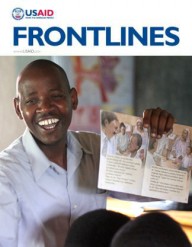

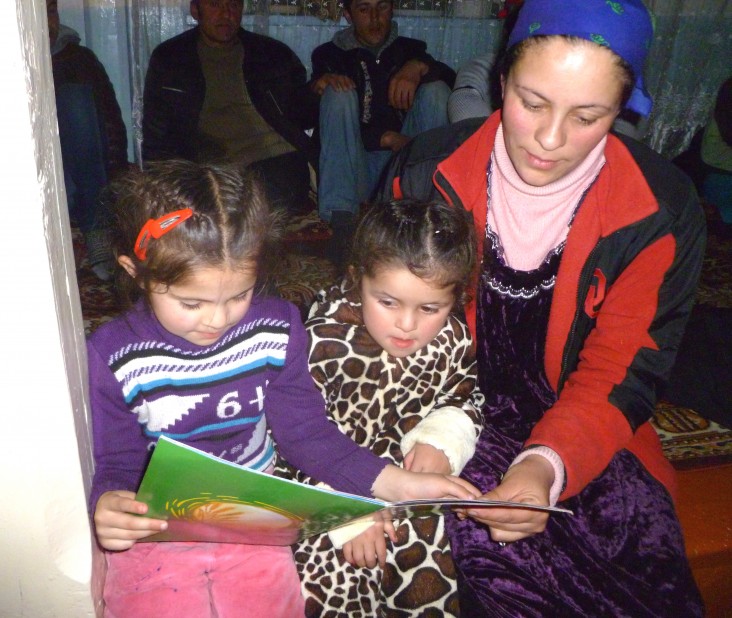
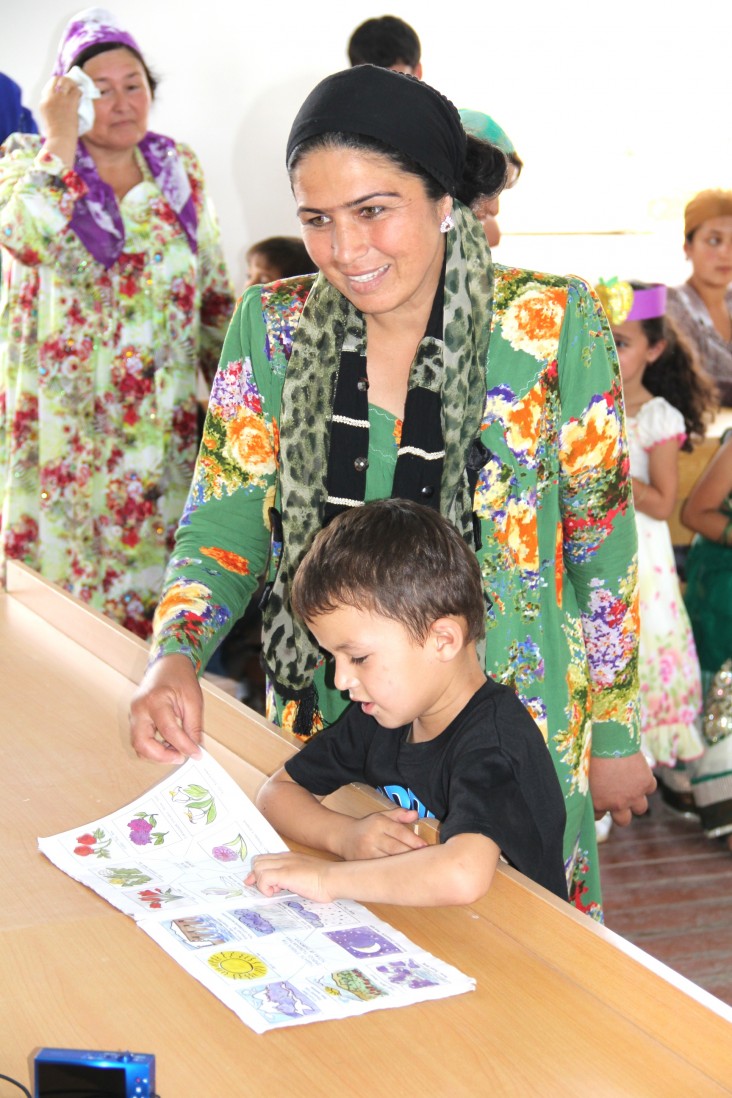
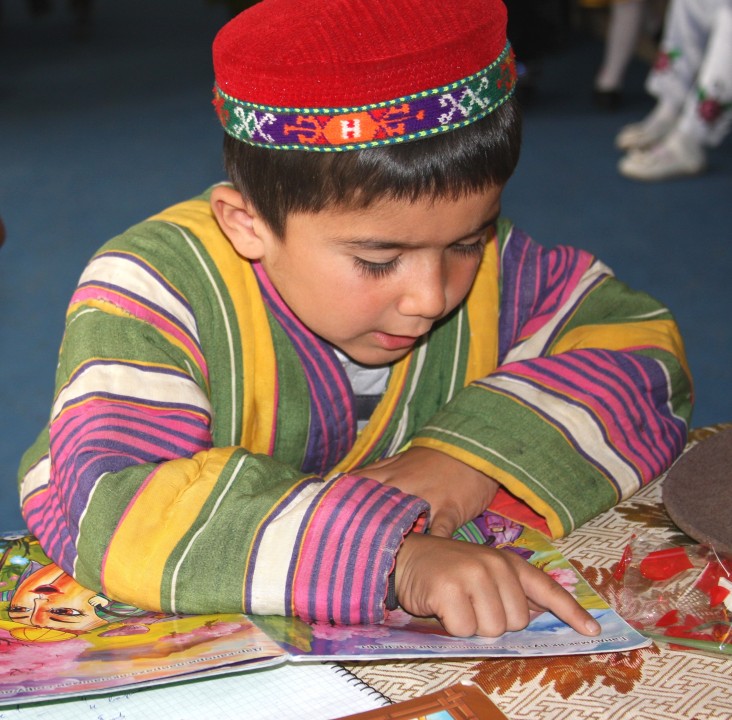
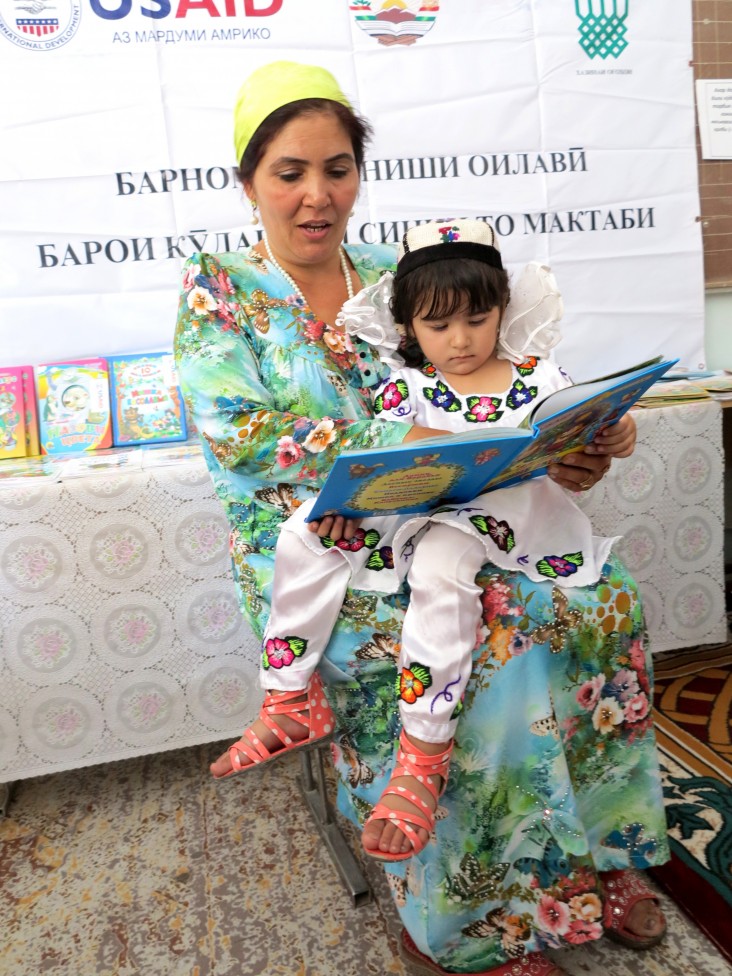
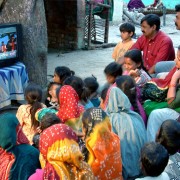
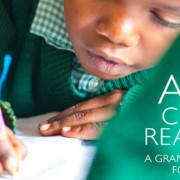
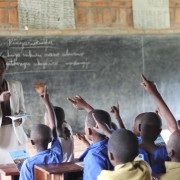
Comment
Make a general inquiry or suggest an improvement.